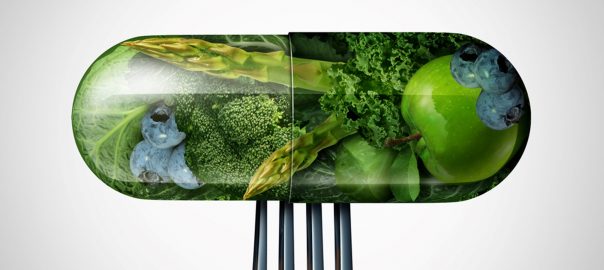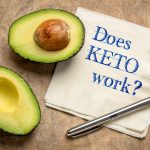
Healthy, Low Carb, Nutrient Packed Food
Most Nutrient-Dense Low Carb Foods
Top 8 best low carb foods with the most vitamins, minerals and nutrients.
Food is often overlooked as a first solution to many problems. But food should be the first thing on your mind if you’re not feeling well. A glass of water is the first thing you should reach for when experience a headache, and not necessary a pill. Some water paired with a nap and/or a relaxed day is what your body is really asking for. And, when we’re experiencing other illnesses or symptoms of a bug, we really should start to think about what nutrient-dense foods we need to battle it. After all, it’s our bodies that give us energy – nothing else – so let’s fuel them with the best vitamins, minerals and nutrients that they need so we can sustain a healthy lifestyle.
Here’s a list of our top 8 recommended low carb foods while on a low carb or ketogenic diet.
Disclaimer: The information in this article is not medical advice. A low carb diet may not be suitable for you. Consult your health care provider before making any changes to your lifestyle or use at your own risk.
Essential Nutrients
Nutrients not only include macronutrients (carbohydrates, protein and fat), but also micronutrients, such as vitamins and minerals. While macronutrients provide our bodies with energy and molecules that facilitate cellular growth and repair, micronutrients assist in a myriad of important functions and interconnected processes and communication in our bodies. In this article, we focus on micronutrients, since different people may require or prefer to consume different amounts of macronutrients. We dive into why these micronutrients need to be an essential part of your diet and which food sources are best to obtain them, even on a low carb or ketogenic diet (but not required).
The list of essential micronutrients is quite long, which can scare off a lot of people. But, if you are curious, they are as follows:
Vitamins
- Vitamin A
- B Vitamins (B1, B2, B3, B5, B6, B7, B9 and B12)
- Vitamin C
- Vitamin D
- Vitamin E
- Vitamin K
Vitamins support the health and functioning of our organs, tissues, teeth and bones. They also support the immune system, cleanse our blood, help metabolize protein and carbohydrates and can prevent against cancerous cells. They also help with the absorption of minerals, such as calcium.
Minerals
- calcium
- chloride
- chromium
- copper
- fluoride
- iodine
- iron
- magnesium
- manganese
- molybdenum
- phosphorus
- potassium
- selenium
- sodium
- sulfur
- zinc
These minerals help improve and strengthen our bones, skin, hair, nails and prevent tooth decay. They also help carry oxygen through the body, assist with blood clotting in life-threatening situations and support healthy blood pressure. They act as chemical messengers involved in many processes including brain function and maintaining balanced water levels in the body. Finally, minerals are an important part of a healthy immune system.
Where Do We Get Essential Nutrients From?
Many of these vitamins and minerals are found in foods like fruits, vegetables and certain meats. However, not all vitamins and minerals are bio-available in food sources and are often easier taken in the form of supplements, or a daily multivitamin. Vitamin D is one that we obtain primarily from the sun, with about 20 minutes of direct exposure on uncovered skin a day required to get the daily recommended intake.
It should be mentioned that supplements cannot completely replace proper nutrition from food. Nutrients from food are usually processed more efficiently by our bodies, so it’s still a good idea to opt for natural food sources of these nutrients. That said, it can be hard to get everything we need from 3 meals a day, plus a couple of snacks – and not to mention, the declining quality of our soil and increased food manufacturing means that our food today is not as nutritious as it once was. It’s a good idea to speak to a physician and get tested for any specific nutrient deficiencies you are concerned about so you can up your intake of those certain nutrients accordingly. Each person may require different levels of certain vitamins and minerals depending on genetics, medical history and regular diet and exercise regimens.
With more science-based research conducted on what proper nutrition entails, we now have more knowledge available about how our bodies function and what they need to do so. It is more possible than ever before to optimize and maximize our body’s potential and make working, exercising and living easier through proper nutrition. We can slow the effects of aging, reduce the severity and frequency of illnesses, have better moods and more energy to do the things we love during the day.
Low Carb Diet Nutrition
Many people pursue low carb lifestyles to improve their health, which is a great step in the right direction, especially for those struggling with medical conditions that can be alleviated with this type of diet. By cutting out “high-carb” foods, we automatically eliminate a lot of unhealthy things from our diet; white bread, chips, baked goods, restaurant foods, and more. That said, when we make drastic changes to our diet, it is important to take a stock check and make sure we are still getting all of the nutrients that our bodies need.
Cutting carbs from the diet can mean that we lose certain nutrients commonly found in things like whole grains, legumes and certain fruits. These foods provide us with important nutrients such as fibre, vitamins, minerals, antioxidants and amino acids. That said, there are alternate sources of these nutrients in many low carb foods. These foods are covered later in this article.
Secondly, those who follow a low carb high fat (LCHF) or ketogenic diet base their diet primarily around fatty foods. While fat is essential to these diets (we need to consume fat in place of carbohydrates to provide us with an alternate source of energy), fat sources don’t provide all of the nutrients that our bodies need. It is still important to eat a good amount of fresh vegetables and choose healthy sources of protein and fat in in these diets. Bacon, cheese and butter can’t sustain us for very long, and a high fat diet based on these and other similar foods can do more damage to our bodies than we think.
Most Nutrient-Dense Foods for a Low Carb Diet
Below is a list of some of the most nutrient-dense foods that are compliant with low carb and ketogenic diets. For the best health and weight loss results from either of these diets, or to simply sustain a nutrient, mineral and vitamin dense lifestyle, be sure to include all of these foods in your diet regularly. Consuming the right amounts of essential nutrients each day will leave you feeling more satiated, in a better mood and more energized to take on the tasks of the day. So, grab a pen and paper and start a grocery list including some or all of these nutrient-dense foods:
Eggs
Eggs are sometimes referred to as “nature’s multivitamin” since they provide us with so many essential nutrients. Be sure to eat the yolks, too, as they contain the highest concentration of vitamins, minerals and amino acids as well as healthy fat. Egg yolks also contain cholesterol, which has given them somewhat of a bad rap, but this is totally misguided. Eggs raise HDL, the “good” cholesterol and don’t raise LDL (“bad”) cholesterol in most people.
It should be mentioned that not all eggs are created equal. You can always tell a good egg from a bad one by the colour of the yolks. Healthy chickens, raised humanely and fed a nutritious diet, will produce deep orange-coloured yolks. Pale yellow, watery yolks are a sign of less-than-optimal farming practices (to say the least) and you could be getting more out of your morning scramble. Look for organic, pasture- or farm-raised eggs for the best quality and taste.
Dark Leafy Greens
Spinach, kale, arugula, mustard greens, beet greens, turnip greens, chard – the list goes on! Greens don’t have to be boring; they can be incorporated into pretty much anything, from smoothies, salads, bowls, pastas, soups, or simply sautéed with a little salt and garlic (another superfood, might we mention).
The vitamin and mineral content of dark leafy greens gives no excuse to skip them. Aim to include them in at least one meal a day to get your daily dose of vitamin A, C, and K as well as high amounts of vitamin B6 and minerals like calcium, potassium, magnesium, copper and manganese. The fibre will also help your gut and keep you feeling full and energized. Although it may not sound fun, see what a salad can do for you mid-afternoon when you contemplate reaching for another cup of coffee or a sweet snack.
If you’re feeling uninspired, check out some of these recipes that can help you incorporate greens in a tasty way:
Berries
Luckily, berries are one of the fruits you can keep on a low carb or keto diet! They contain less natural sugar than other fruits like melon, bananas, apples and oranges, and they provide tons of vitamins, minerals and antioxidant compounds! In general, dark red, purple and blue berries indicate the highest nutrient content. The nutrients found in berries have been linked to better brain function, reduced risk of cancer, lowered blood pressure and LDL cholesterol levels and even improved insulin sensitivity.
Try adding a handful into your smoothies, salads, yogurt or low carb granola bowls.
Tofu
A versatile and inexpensive alternative to meat, tofu is packed with micronutrients. It is an exceptional source of plant-based protein and even contains all nine essential amino acids, which are used in the synthesis of proteins in our bodies (if you were wondering, our bodies are made up almost entirely of protein apart from water and fat). Tofu is also a great source of iron, calcium, manganese and phosphorus and contains other vitamins and minerals as well.
Be sure to look for minimally processed tofu (i.e. check for a short ingredient list) to get the best quality. Firm and extra firm tofu can be baked, grilled or stir-fried, while softer versions are a great replacement for cheese or cream and can be added to things like sauces, desserts, smoothies and salad dressings.
Here are some tofu recipes to help get you started if you’ve never tried this low calorie, low carb, high protein superfood:
Flax, Chia and Hemp Seeds
Small but mighty! Each of these seeds contain several vital nutrients such as fibre, omega-3 fatty acids and several minerals (copper, selenium, iron, magnesium, calcium and phosphorus, to name a few). Hemp seeds also provide some dietary vitamins, particularly vitamin E which has great benefits for the skin, eyes, heart and immune system.
Seeds are also super easy to add to just about anything! Sprinkle them on salads, yogurt (or plant-based alternative), granola and add them to smoothies or homemade baked goods. Here are a few simple recipes to help get you started:
- Chocolate Flaxseed Pancakes
- Keto “Oatmeal”
- Simple Chia Seed Pudding – you can customize the flavour to your liking with flavoured sweeteners, nut butter, spices and/or cocoa powder.
Seaweed
Seaweed is a vegetable infused with all of the nutrients from the sea! It is one of the richest natural sources of iodine, which can help maintain or improve thyroid health. It is also high in iron and vitamin C, which aids in the absorption of iron, as well as antioxidants, vitamin K, B12 and several other nutrients! Red seaweed and dulse are also surprisingly high in protein. You can look for dried seaweed and sprinkle it over any savoury meal for added umami flavour! You can buy our Kelp Noodles from Sea Tangle to try a new take on seaweed! They make a great low carb noodle replacement.
Fatty Fish
Fatty fish contain the highest levels and most beneficial types of omega-3 fatty acids, EPA and DHA. A diet rich in omega-3s has been shown to reduce inflammation in the body and lower the risk of diseases such as cancer, arthritis and heart problems. Fatty fish, such as salmon, trout, mackerel and sardines, also contain a number of other important nutrients such as vitamin D and B2 and a number of minerals (linked to their marine diet) including iron, zinc, iodine, magnesium and potassium.
Be sure to choose wild caught fish when possible, as they contain the highest amount of nutrients as opposed to farmed fish. Also, to maximize the benefits of omega-3 fatty acids, cut down on foods that are high in omega-6 fatty acids as much as possible in order to maintain the right ratio of each of these fats. Omega-6s are found in margarine, shortening and many vegetable oils, especially those used in fast food and restaurant preparation. Choose healthy cooking oils in your own food preparation, such as olive oil, ghee, or coconut oil. Flax oil is also extremely high in omega-3 fatty acids, but due to its low stability at high temperatures, it is best enjoyed drizzled over salad.
Dark Chocolate and Cacao
Cacao is one of the best sources of antioxidants on the planet. It is also rich in iron, magnesium, phosphorus, manganese, copper and zinc. Plus, it contains a compound called theobromine which has been shown to improve focus and brain function without the addictive qualities of caffeine (although chocolate does contain small amounts of caffeine, as well). However, this is not an excuse to load up on candy bars, as the traditional types contain a lot of sugar. To include cacao in your diet, look for dark chocolate that is at least 70% cacao. We carry a large inventory of low carb and sugar-free chocolates, you can buy them here! You can also sprinkle cocoa powder or cacao nibs over cereal, yogurt, smoothies or incorporate them in homemade baked goods.
Stay Connected
We hope this article helped spark your interest and importance in nutrient dense foods, and help you find the best ways to include the best options to match your diet! If you liked this article or have had any experience with the low carb grocery, we want to hear about it! Please take a moment to leave us your thoughts with a Google Review. If you want to join our community of over 65,000 people with similar low carb and keto diet interests, please join us on Facebook and Instagram.
Also, if you want the best low carb prices and news – feel free to subscribe to our Weekly Newsletter!






